The Ultimate Guide to Ingredients for Protein Bar Production: Partner with MT Royal Company
In recent years, protein bars have surged in popularity as a convenient and nutritious snack option. With the growing awareness of health and fitness, consumers are increasingly seeking out protein-rich snacks to fuel their busy lifestyles. Whether they are used as a meal replacement, a post-workout snack, or a mid-day energy boost, protein bars have become a staple in many diets. However, producing high-quality protein bars requires careful consideration of ingredients that provide the right balance of taste, texture, and nutrition. At MT Royal Company, we specialize in supplying the ingredients for protein bar production, helping manufacturers create products that meet consumer demands.
In this comprehensive guide, we will explore the essential ingredients needed for protein bar production, provide a complete list of these components, discuss why MT Royal Company should be your trusted partner, and outline the steps involved in importing these crucial ingredients. Join us as we delve into the world of protein bars and discover how MT Royal can enhance your offerings.
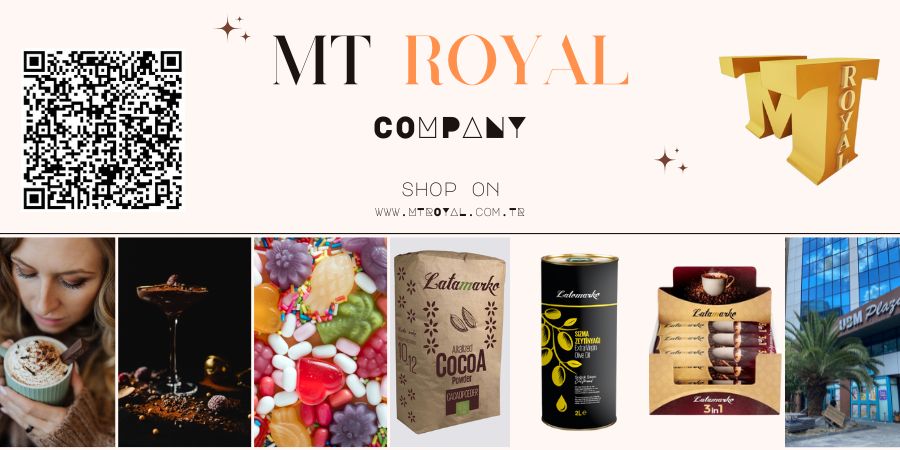
The Growing Demand for Protein Bars
The demand for protein bars has skyrocketed, driven by several key factors:
1. Health and Wellness Trends
As people become more health-conscious, there is a growing focus on protein intake. Protein bars are seen as a convenient way to boost protein consumption without the need for meal prep. This trend has led to an influx of brands offering high-protein snacks, creating a competitive market.
2. Convenience
Protein bars are easy to carry and consume, making them an ideal choice for busy individuals. Whether at work, in the gym, or on the go, protein bars offer a quick and satisfying option that can fit seamlessly into any lifestyle.
3. Variety and Innovation
The protein bar market has expanded to include a wide variety of flavors, textures, and formulations. From nutty to fruity, chewy to crunchy, there’s a protein bar for every taste preference. Innovations such as vegan, gluten-free, and low-sugar options have further broadened the appeal of protein bars.
4. Customization
With the rise of personalized nutrition, many consumers are looking for ways to tailor their snacks to meet specific dietary needs. Manufacturers are responding by offering customizable protein bars that allow consumers to choose their ingredients, flavors, and nutritional profiles.
Complete List of Ingredients for Protein Bar Production
Creating a high-quality protein bar involves selecting ingredients that provide the right balance of nutrition, taste, and texture. Here’s a complete list of essential ingredients for protein bar production:
1. Protein Sources
Protein is the cornerstone of any protein bar, providing essential amino acids needed for muscle growth and repair. Common protein sources include:
- Whey Protein Isolate: A fast-digesting protein derived from milk, whey protein isolate is a popular choice due to its high protein content and excellent amino acid profile.
- Casein Protein: Another milk-derived protein, casein is digested more slowly than whey, making it ideal for sustained energy release.
- Plant-Based Proteins: Options like pea protein, rice protein, and hemp protein are increasingly popular among vegan and health-conscious consumers. These plant-based proteins offer a variety of amino acids and are often hypoallergenic.
- Egg White Protein: A complete protein source that is low in fat and carbohydrates, egg white protein is an excellent option for those looking to avoid dairy.
2. Base Ingredients
Base ingredients provide structure and bulk to protein bars. Common options include:
- Oats: Rolled or quick oats are often used as a base for protein bars, adding fiber and texture.
- Brown Rice Syrup: A natural sweetener that also serves as a binding agent, brown rice syrup adds a chewy texture to bars.
- Nut Butters: Almond, peanut, or cashew butter can add richness, flavor, and healthy fats to protein bars while also serving as a binder.
- Coconut Flakes: Shredded coconut adds flavor and texture, contributing to the overall mouthfeel of the bar.
3. Sweeteners
Sweeteners enhance the flavor of protein bars and can vary based on dietary preferences. Common sweeteners include:
- Natural Sweeteners: Options like honey, maple syrup, or agave nectar provide sweetness while adding unique flavors.
- Stevia: A calorie-free, plant-derived sweetener that is popular in health-focused protein bars.
- Erythritol: A sugar alcohol that provides sweetness without the calories, making it a popular choice for low-calorie products.
4. Flavorings
Flavorings are essential for making protein bars appealing to consumers. Common flavoring ingredients include:
- Vanilla Extract: A classic flavoring that enhances the overall taste of the bar.
- Cocoa Powder: Used for chocolate-flavored bars, cocoa powder adds a rich chocolate flavor and antioxidants.
- Fruit Purees: Pureed fruits can add natural sweetness and flavor, such as apple or banana puree.
5. Texture Enhancers
Texture is crucial for the overall enjoyment of protein bars. Options to enhance texture include:
- Crispy Rice Cereal: Adds a crunchy texture and lightens the overall density of the bar.
- Nuts and Seeds: Chopped almonds, walnuts, chia seeds, or flaxseeds provide crunch and healthy fats, contributing to the nutritional profile.
- Chocolate Chips: Dark, milk, or white chocolate chips can be added for a sweet, indulgent touch.
6. Stabilizers and Emulsifiers
To ensure a stable product that maintains its texture and quality, stabilizers and emulsifiers may be included:
- Guar Gum: A natural thickening agent that helps stabilize the texture of the bar.
- Xanthan Gum: Another thickening agent that helps improve the overall consistency and stability of the protein bar.
7. Preservatives
To extend shelf life and maintain product quality, preservatives may be included:
- Potassium Sorbate: Helps inhibit mold and yeast growth, ensuring the protein bars remain fresh for longer.
- Ascorbic Acid (Vitamin C): Acts as a natural antioxidant, helping to preserve freshness and prevent oxidation.
Why Choose MT Royal Company?
When sourcing raw materials for protein bar production, partnering with MT Royal offers numerous advantages that can significantly enhance your business:
1. Extensive Supplier Network
MT Royal has developed strong relationships with trusted suppliers who provide high-quality ingredients specifically for protein bar production. This extensive network allows us to connect you with reliable producers who adhere to high-quality standards.
2. Expertise in Import Regulations
Navigating food import regulations can be complex, particularly when dealing with various ingredients. Our team possesses extensive knowledge of international import laws and customs procedures, ensuring compliance and a smooth transaction process. We guide you through the necessary regulations, minimizing potential delays.
3. Quality Assurance
Quality is our top priority. We conduct thorough vetting of our suppliers and ensure that all products undergo rigorous testing to meet international safety and quality standards. This guarantees that you can trust the ingredients you import from us.
4. Competitive Pricing
At MT Royal, we are committed to providing competitive pricing on all our ingredients for protein bar production. By working directly with producers and optimizing our supply chain, we can offer you high-quality ingredients without exceeding your budget.
5. Personalized Support
We understand that every business has unique needs. Our dedicated team is here to assist you with product selection, documentation, and logistical coordination, ensuring a smooth import process tailored to your specific requirements.
6. Efficient Logistics
Timely delivery is crucial in the food industry. Our established logistics network ensures that your orders of protein bar ingredients are shipped promptly and arrive in optimal condition. You can rely on MT Royal to manage all aspects of logistics, from shipping to customs clearance.

Steps to Import Raw Materials for Protein Bar Production
Understanding the importation process is vital for successful sourcing. Here are the essential steps involved in importing raw materials for protein bar production:
Step 1: Identify Your Product Needs
Start by researching the specific ingredients you need for your protein bar products. Consider factors such as market demand, quality requirements, and potential suppliers. MT Royal can assist you in identifying suitable ingredients based on your requirements.
Step 2: Establish Relationships with Trusted Suppliers
Building relationships with reliable suppliers is crucial for successful imports. At MT Royal, we have established partnerships with top suppliers who can provide you with the best ingredients for your protein bar products.
Step 3: Obtain Necessary Documentation
Gather all required documentation for your imports. This may include:
- Commercial Invoice: A detailed description of the transaction between the buyer and seller.
- Packing List: An itemized list of the goods being shipped.
- Certificates of Origin: Documentation confirming the country of origin of the products.
- Health and Safety Certificates: Required to verify compliance with food safety standards.
- Import Permits: Ensure you have any required import permits based on the product type.
MT Royal will assist you in obtaining the necessary documentation, ensuring compliance with regulations.
Step 4: Collaborate with MT Royal
Engaging with MT Royal will streamline your import process. Our team will guide you through the necessary steps and ensure that all documentation is in order. We will assist in liaising with suppliers and managing logistics.
Step 5: Customs Clearance
Once your ingredients arrive in Turkey, they will need to undergo customs clearance. Our experienced team will handle this process on your behalf, ensuring that all required documentation is submitted accurately and promptly.
Step 6: Delivery to Your Location
After customs clearance is complete, we will coordinate the delivery of your ingredients to your specified location. Our logistics network ensures that your imported goods arrive on time, ready for production.
Step 7: Quality Control Upon Arrival
Once your ingredients have been delivered, it’s essential to conduct quality control checks to ensure that they meet your specifications. MT Royal is committed to supporting you in this process by providing guidance on best practices for quality assurance.
Step 8: Maintain Communication with Suppliers
Keeping lines of communication open with your suppliers and with MT Royal is vital for successful importation. Regular updates and feedback can help ensure a smooth process for future orders and enhance your overall experience.
Understanding Tariffs and Duties
When importing food products into Turkey, it’s important to be aware of any applicable tariffs and duties. The Turkish Customs and Trade Ministry establishes these rates, which can vary depending on the type of product being imported. MT Royal can provide insights into potential costs associated with your imports, helping you budget effectively.
Overcoming Challenges in the Import Process
Importing food products can present challenges, from regulatory compliance to logistical hurdles. Here’s how MT Royal helps you navigate potential issues:
1. Regulatory Compliance
Understanding and complying with Turkey’s import regulations for food can be complex. Our team provides expert guidance to ensure that all documentation and processes adhere to legal requirements, minimizing the risk of fines or delays.
2. Quality Assurance
Quality control is paramount when importing food products. MT Royal conducts thorough inspections and works with trusted suppliers to ensure that the products you import meet the highest standards.
3. Logistical Coordination
Transporting food products can involve logistical complexities. Our experienced logistics team manages all aspects of the supply chain, from shipping to warehousing, ensuring that your products are delivered on time and in excellent condition.
4. Adaptability to Market Changes
The food industry is ever-evolving, with changing consumer preferences and regulatory updates. MT Royal stays ahead of trends and market shifts, providing you with timely information and insights to adapt your import strategy effectively.
Conclusion: Partner with MT Royal for Quality Protein Bar Ingredients
When it comes to sourcing raw materials for protein bar production, MT Royal Company is your trusted partner for quality and excellence. Our commitment to high-quality ingredients, competitive pricing, and exceptional service makes us the ideal choice for all your import needs.
Don’t miss out on the opportunity to enhance your protein bar offerings with top-quality ingredients from Turkey. Experience the benefits of partnering with MT Royal today! Contact us to explore our extensive range of products and discover how we can help you navigate the complexities of the import process. Together, let’s unlock the potential of the Turkish market and ensure your business thrives in this competitive landscape!
Explore our selection of premium food raw materials.
Import-Export Companies in Türkiye with 99% discount
Food industry raw materials – list of products


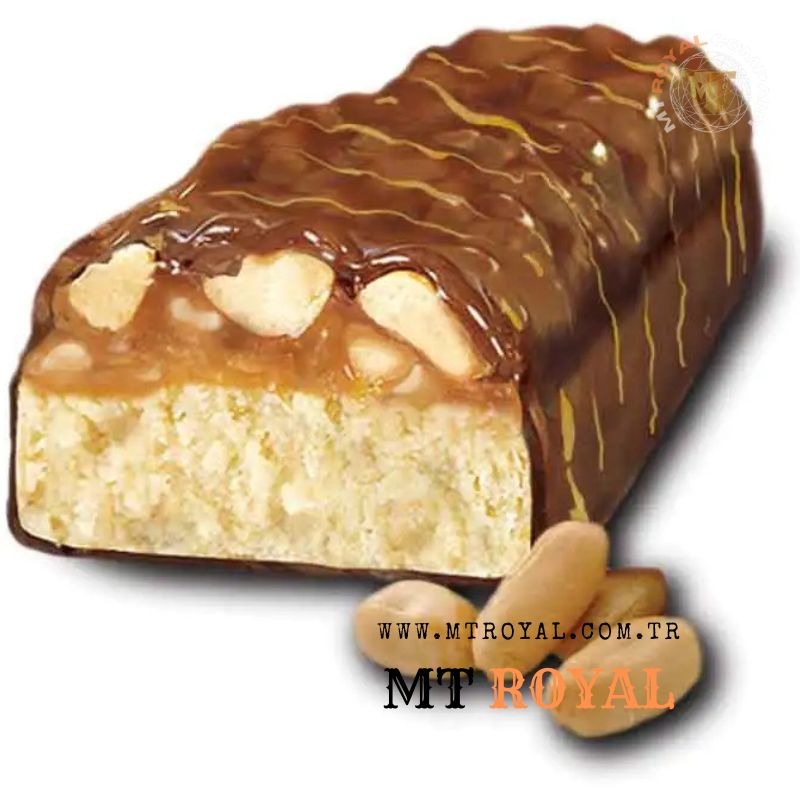
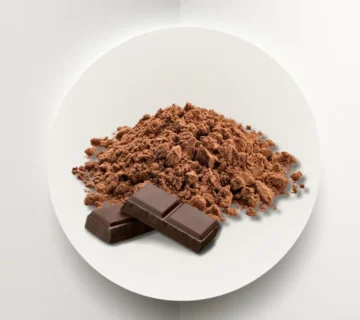
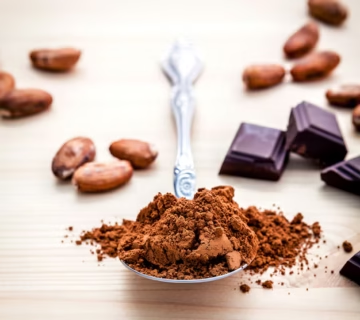
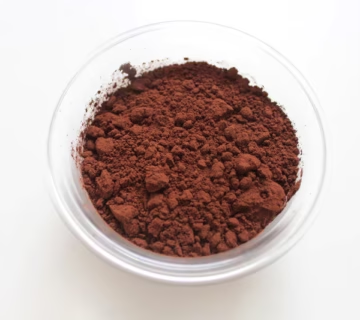
No comment